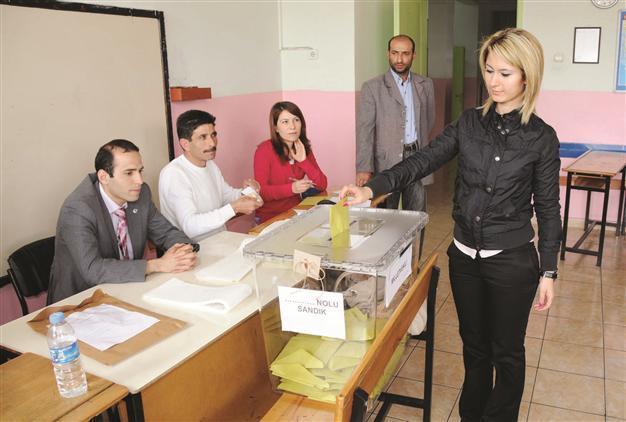NGOs pressure Turkish government for ‘urgent’ election reform
ISTANBUL

The report mainly pressures the government to close the gap between the constituency and lawmakers through introducing a comprehensive reform. DHA photo
The Turkish government should introduce immediate reforms to legislation governing political parties and election systems in the country to enable more direct public involvement, according to a comprehensive proposal penned after discussion with some of Turkey’s leading political figures.
“The law on political parties and election systems should be immediately and comprehensively undergo reregulation as a solution to problems regarding the representation of different groups and opinions in the Turkish Parliament, to realize a deputy-electorate tie, to end tyrannical leadership and to facilitate the electorate’s shaping of Turkish politics,” read a proposal co-drafted by Istanbul Policy Center director Fuat Keyman, the Head of KONDA Research and Consultancy organization Tarhan Erdem and KONDA Director Bekir Ağırdır.
All findings of the report were obtained by consulting relevant academics and around a dozen deputies from different parties, as well as representatives of prominent industrial organizations.
The academics put the legislative rules regulating the election system and political party organizations under the spotlight, their suggestions inferring the underlying object of “strengthening Turkey’s transformation with democracy.”
The report, released on Dec. 13, mainly pressures the government to close the gap between the constituency and lawmakers, with party members’ participation in internal party candidate selection processes also being deemed as vital. The restrictions on party memberships and structure also should be narrowed, it adds.
Wider representation ‘needed’According to the report, the level of representation is still insufficient in Turkey as well.
Introducing measures that would encourage participation of disadvantaged groups, such as women and the disabled, in politics would be a step towards that end, as well as the reduction of the 10 percent election threshold.
While stressing that the removal of the threshold would bring about complications that the Turkish election system may not handle, academics affirmed that slashing it to three, four or five percent would be effective in relaying a cross-section of viewpoints to the floor of Parliament.
The solidification of local governments was also identified as key for the country to distance itself from centralism that precipitates authoritarian practices, while allowing for the electorate to feel more involved into politics. The proposal also asks lawmakers to keep the Constitution process alive, in order to secure enactment of the reforms.
